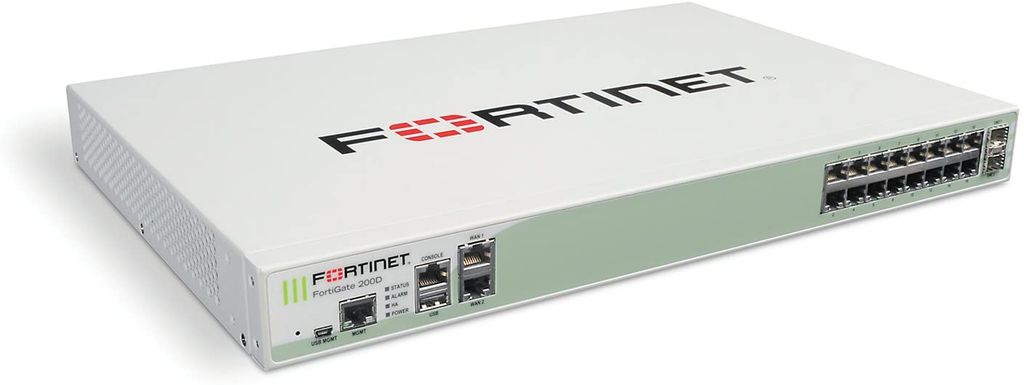Some months ago, pipeline operator Colonial Pipeline was forced to shut down in a catastrophic event that cost the company $4.4 million.
But that $4.4 million didn't go toward building infrastructure, increasing resources, or training employees.
It went to a hacker who held Colonial Pipeline's systems hostage.
After this ransomware attack against Colonial Pipeline, more and more IT leaders are thinking about the importance of cyber security.
trong cyber security is important for maintaining healthy infrastructure, data security, and consumer confidence. But despite the growing relevance of cyber security, many IT managers are still uneducated.
Whether you're an engineer, an IT manager, or just interested in protecting your data, we've got you covered. Read on to learn everything you need to know about cyber security.

What Is a Cyber Attack?
A cyber attack is an effort to steal, delete, leak, or gain data by illegal means. Cyber attacks are always unauthorized and often difficult to detect. Here are some of the most common kinds of cyber attacks:
Ataques de puerta trasera
In a backdoor cyber attack, a hacker installs malware on a private system so that they can bypass ordinary authentication systems, like usernames and passwords. This is especially common on old operating systems.
Phishing
No matter who you are, you've probably experienced a phishing attempt. Phishing is when an attacker sends an email pretending to be someone you trust: maybe your bank, your employer, or your attorney.
Phishing emails trick you into clicking a harmful link or downloading a malicious attachment. This form of cyber attack is old, but widespread—because it tends to work.
Ransomware
Ransomware is the kind of cyber attack that shut down Colonial Pipeline.
It involves an attacker encrypting information, and then demanding a ransom from the victim, often payable in Bitcoin. In the case of Colonial Pipeline, that ransom was $4.4 million.
Occasionally ransomware hackers will pretend to be a legitimate organization, such as a government agency, but most don't bother with this pretense.
Spoofing
Spoofing is similar to phishing. In a spoofing attack, an attacker takes suspicious communication from an unknown source and makes it look like it comes from a trustworthy source.
Spoofing attacks often affect emails and URLs, but occasionally they disguise sources like IP addresses or DNS servers.
Spoofing is usually a way of gaining initial access before launching a more widespread—and harmful—attack.
Typosquatting
This type of attack looks similar to spoofing, but it is actually quite different.
Typosquatting involves changing a URL slightly to trick the victim into thinking it is a trusted website. A hacker might add letters or periods to the URL, knowing that the average person will not notice the extra details.
This tricks the victim into clicking on a harmful link.
Escalada de privilegios
Privilege escalation is an attack that allows a hacker to gain access to privileges that an ordinary user is not supposed to have.
Privilege escalation attacks are horizontal or vertical. In horizontal privilege escalation, a user gains access to another user's account. In vertical privilege escalation, a user gains extra privileges beyond what an ordinary user has.
Denegación de servicio
A denial of service attack is an attack in which the hacker makes a normally accessible system inaccessible to the user.
An attacker usually accomplishes this by sending so many requests that the host cannot fulfill them all. It's like clogging a doorway with so many people that no one can get in or out.
Targets of Cyber Attacks

Cyber attacks can target any private entity or organization, but these are some of the most common targets:
Empresas
This study by the International Data Corporation reports that almost half of businesses in the United States alone have suffered from a data breach in the past.
Of the most vulnerable industries, businesses reported the highest number of data breaches in 2019. That's because businesses are a prime target for cyber attacks.
Businesses are a treasure trove for potential attackers. They contain sensitive information that unlocks everything from bank accounts to the pockets of dealers on the black market.
Given all that, it's no wonder that businesses are the biggest target for attacks.
Medicina/Salud
The healthcare industry is a huge target for attackers.
That's because patient information is incredibly valuable to companies that sell health-related products. That makes it worth a lot to hackers who can turn around and sell the information to the highest bidder.
Second, medical professionals often need to access information from a remote location. This is because collaboration is essential in the medical industry.
The problem is that remote access makes networks more vulnerable to attack. That makes it easier for attackers to steal valuable patient data.
Educación
Cyber attackers target the educational industry for two main reasons.
Institutions of higher education keep records for thousands of students. That means they contain important and valuable information about the students.
Colleges and universities also keep data about research projects. That data can be profitable information to potential hackers.
Additionally, the cyber security at institutions of higher education is often outdated. This makes it easier for attackers to access the information in their databases.
Finanzas
It's obvious why financial institutions are a target for cyber attacks. Banks, investment firms, and credit card companies keep records that, if leaked, could provide hackers with literally millions of dollars.
As we continue to see an increase in electronic payments, rather than cash payments, we should expect to see an increase in cyber attacks. When stored in electronic locations, money provides an incentive for hacking.
When financial data leaks do happen, they are often devastating. In July of 2019, a hacker got access to financial information that included the SSNs of 140,000 customers. 100 million people were affected in total.
How to Enhance Your Cyber Security
Now that you know the major types and targets of cyber attacks, let's take a look at the best ways that you can maintain your cybersecurity and protect against attacks:

Cortafuegos o Firewall
A Firewall is a form of network security that protects your information from outside threats.
Simply put, a firewall monitors incoming and outgoing packets of data, analyzing the information based on a set of security rules. These rules tell the firewall whether the network traffic is safe or not.
ut not all firewalls are created equal. If you're looking for a high-performance firewall that will provide multi-layer security, try any of the Fortinet new generation firewalls.
Filtros de Internet
The Internet filters are often a cost-effective, simple solution to decrease the risk of a cyber attack on you or your business.
Even if you're looking to increase cyber security in your own home, internet filters will help. By providing additional parental control, you can keep yourself and your children safe.
Reliable internet filtering technology, like FlashStart,inspects internet data and filters out harmful information, without impacting the individual user's experience.
Seguridad Wi-Fi
An insecure Wi-Fi network makes your information vulnerable to attackers. But fortunately, you can take several easy steps to secure your Wi-Fi router.
First, change the password. If you leave your Wi-Fi password as the default, an attacker who knows your password can easily hack into your network.
Next, make sure your firmware is up to date. By updating your firmware regularly, you can make sure that your network stays secure.
You should also ensure that remote access is disabled. While remote access features can sometimes be helpful, you should keep them disabled in most circumstances to avoid cyber attacks. Check out this post to learn more about wireless security and how to maintain it.
Install the Access Points as far as the external walls as possible in order they can extend the coverage, outside of your home or your office.
Whenever you are not at home or at work, if the WiFi network is not going to be used, you can program its disconnection to prevent someone from accessing it in your absence.
Segment your networks. Although it is a procedure that involves more advanced knowledge, it is very important to separate networks for private use, guests or IoT devices.
Aruba Instant On allows your access points to provide security, easily and quickly implementing some of the measures we have just described.
Gateway de seguridad
Speaking of wireless security, it might be a good idea to install a security gateway
A security gateway is like a more powerful firewall. It creates a layer of protection between you and the internet, analyzing incoming information for safety.
Security gateways are either on-premise or based in the cloud. Installing a security gateway gives you an extra layer of protection against cyber attacks.
For a reliable and affordable security gateway, check out Ruijie Security Gateway RG-EG2100-P.
Infórmate
Educate YourselfTechnology is constantly evolving, and that means cyber attacks are getting more and more complicated. That's why it's important to educate yourself on the latest cyber security methods.
But don't worry. As attackers discover new ways to access private information, we're working hard to bring you the best ways to protect yourself.
To find out more information about cyber security and how to protect your networks contact us and we will be pleasant to support you to find the best solution for your cybersecurity needs.